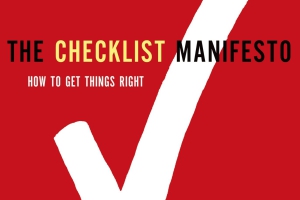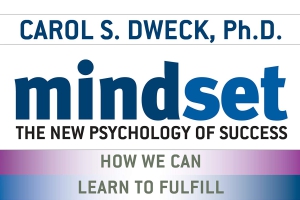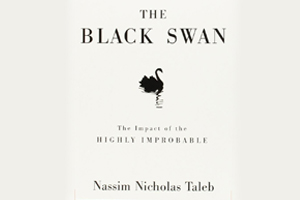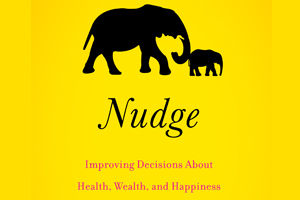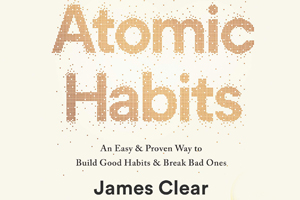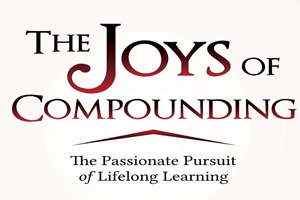Author: Noah Kagan
The pursuit of financial success and independence has always been a universal aspiration. However, in an era where traditional job roles often fail to satisfy the entrepreneurial spirit, the allure of creating a thriving business in a short span of time is particularly compelling. Imagine transforming a standard weekend into a launching pad for a seven-figure business – this notion is not just a dream but a reality that Noah Kagan brings to life in his compelling guide, Million Dollar Weekend. By blending practical advice with actionable steps, Kagan provides a roadmap for anyone looking to break free from the monotony of a conventional job and embrace the exhilarating world of entrepreneurship.
Million Dollar Weekend is a meticulously crafted guide that outlines a step-by-step approach to starting a business with million-dollar potential in just 48 hours. Kagan’s book addresses common fears and obstacles that many aspiring entrepreneurs face, offering strategies to identify, structure, and validate lucrative business ideas swiftly. The book does not stop at the initial launch; it also delves into scaling the business beyond the first million dollars, making it a comprehensive manual for sustained entrepreneurial success. Kagan’s pragmatic approach demystifies the process of business creation, making it accessible to anyone willing to take the leap.
Noah Kagan, the author of Million Dollar Weekend, is the founder and CEO of AppSumo.com, a platform that helps entrepreneurs grow their businesses by providing them with essential tools and resources. Before his entrepreneurial successes, Kagan gained experience at renowned companies like Intel, Facebook, and Mint. His journey from a corporate employee to a successful entrepreneur gives him a unique perspective, which he generously shares in his book. Known for his unconventional methods and practical advice, Kagan has established himself as a thought leader in the entrepreneurial space, helping countless individuals transform their business dreams into reality.
What sets Million Dollar Weekend apart from other entrepreneurial guides is its focus on rapid execution and practical templates. Kagan's book is packed with tips, processes, and real-life examples that ensure readers can absorb and implement the strategies effectively. The book’s emphasis on actionable steps makes it more than just a theoretical guide; it serves as a practical toolkit for aspiring entrepreneurs. Kagan’s engaging writing style, combined with his demand for accountability and action, inspires readers to push their boundaries and achieve extraordinary results in a remarkably short period. Whether you are a seasoned entrepreneur or a beginner, Million Dollar Weekend promises to be a valuable resource on your path to financial freedom and business success.
Key Takeaways
- The Million Dollar Weekend process involves identifying a solvable problem, crafting a market-backed solution, and pre-selling to validate your idea
- Never launch a business until you convince three people to pay you within 48 hours
- The main fears that hinder business starters are the fear of starting and the fear of asking
- Business is a cycle of trying new things, asking for payment, and refining based on feedback
- Adopt the motto NOW, Not How, to drive immediate action
- Write down your Freedom Number to provide early motivation and set a short-term revenue goal
- Selling is helping. If your product improves lives, selling becomes an act of education
- Know your target market. Who you are selling to, what problem you are solving, and where they are
- Utilise your personal network, such as friends and colleagues, to find your first customers
In Million Dollar Weekend, Noah Kagan shares the raw realities of entrepreneurship, including his own setbacks and successes. He details his business-building process that transformed his idea into a USD 65 million company, encouraging readers to face their fears and confidently pursue their entrepreneurial dreams.
Overcome the fear of starting and asking
The two most common obstacles that crush entrepreneurial dreams are the fear of starting and the fear of asking. Noah Kagan, after his stint at Facebook, launched numerous side hustles, including teaching online marketing to Korean students, blogging, and organising local events like happy hours and chess meetups. Through these experiences, one aspect stands out – focus on being a starter, an experimenter, and a learner above all else. Most people never start anything because fear, in its various forms, holds them back. To counter this, the “The Dollar Challenge” proposal is an excellent tactic: ask someone you know for a one-dollar investment in your future business. This exercise forces you out of your comfort zone, makes you accountable to someone else, and garners early supporters. To conquer the fear of asking, you can also try “The Coffee Challenge”: go to a coffee shop and ask for a 10% discount on your favourite drink. Do not provide any justification for your request – simply smile and ask. Most likely, you will be rejected, but you will learn that rejection is not the end of the world. This practice helps you build resilience and reduces the anxiety associated with asking. By embracing these challenges, you will overcome the initial fears and take the first crucial steps toward your entrepreneurial journey.
Generate million-dollar business ideas from four key sources
Customers care more about solutions to their problems than about your ideas. In college, Kagan brainstormed business ideas with his best friend, such as ordering at restaurants from an iPad embedded in the table. However, he realised that the real key to successful business ideas is addressing real problems that people face. Here are four reliable sources for generating business ideas:
- Solve your own problem – If something frustrates you daily, others likely share the same frustration. For example, if you struggle with managing your schedule, developing a better planner or scheduling app could be a great business idea.
- Complement a bestseller – Enhance a popular product by creating accessories or related items that improve its functionality or appeal. For instance, designing stylish covers for popular devices or offering tutorials for complex software.
- Scour marketplaces – Platforms like eBay, Etsy, and Craigslist reveal what people are willing to spend money on. Look for common problems people are trying to solve, like finding a babysitter or getting a plumbing issue fixed, and be the solution.
- Google search queries – Autocomplete suggestions in Google searches show what people are struggling with. Type in “how to…” and see what comes up. These search queries can provide insights into widespread issues that need solutions.
Focusing on solving your own problems is particularly effective. Reflect on daily irritations, long-standing to-do list items, recurring failures, or unmet needs. This approach can uncover valuable ideas that people genuinely want. For example, if you often find yourself frustrated with a lack of healthy snack options at work, creating a subscription box service for healthy office snacks could be a viable business idea.
Validate your business idea by securing paying customers
Before launching any business, it is essential to ensure that people are willing to pay for your idea. The “Golden Rule of Validation” involves finding three paying customers within 48 hours. Asking if someone would hypothetically pay for your product is different from actually receiving payment. Real validation comes from monetary commitment, even from your closest friends. This step is crucial because it provides concrete evidence that there is a market for your product. For instance, AppSumo was validated with a simple landing page, a PayPal button, and some ads on Reddit. When the app sold over 200 subscriptions to Imgur, an image-sharing tool, in two days, it was clear that the idea had potential. This lean approach allows you to test the market without significant investment so always validate your business by securing initial customers. If you cannot get three paying customers within 48 hours, it is a sign to reassess or pivot your idea. This validation step ensures your business has real demand before you invest further time and resources. It also helps you understand your market better and refine your offering based on early feedback.
Make your first dollar before aiming for millions
Many aspiring entrepreneurs dream of making millions and enjoying a life of freedom and luxury. While these are valid aspirations, it is crucial to start with a more immediate and achievable goal: making your first dollar. The importance of understanding your "freedom number"—the realistic amount of income you need to achieve financial independence – cannot be overemphasised. Knowing your freedom number helps you set clear, attainable goals and prevents you from aimlessly chasing money. Indeed, many people struggle to make their first dollar because they are overly focused on how to make their first million. By concentrating on earning that first dollar, you lay a solid foundation for scaling your business. This approach ensures that you are in control of your business, rather than being driven by an unattainable vision of instant wealth.
Avoid the founder-first mentality
A common mistake among new entrepreneurs is the "Founder-First Mentality." This mindset occurs when entrepreneurs become so attached to their products that they prioritise their creation over solving real customer problems. This approach, also described by Fan Deng as "inventor’s entrepreneurship," is risky because it focuses on the inventor's perspective rather than the market's needs. Many entrepreneurs invest significant time, effort, and resources into developing a product, only to find that customers are not willing to pay for it. This happens because they are fixated on their skills and the brilliance of their invention rather than understanding and addressing consumer pain points. The endowment effect, where individuals overvalue their possessions, exacerbates this issue. To avoid this pitfall, entrepreneurs must shift their focus from their product to the problem it solves. Successful businesses are built on a deep understanding of consumer needs and a commitment to creating solutions that resonate with them. Adopting a customer-centric approach ensures that your product is not just innovative but also valuable and desirable in the market. This perspective shift is crucial for navigating the unpredictable terrain of entrepreneurship and increasing the chances of sustainable success.
Million Dollar Weekend offers invaluable insights and actionable strategies for aspiring entrepreneurs. By addressing common fears, validating ideas, and focusing on solving real problems, Noah Kagan empowers readers to confidently navigate the path to business success. This book is, undoubtedly, a practical guide for transforming entrepreneurial dreams into reality so if you are keen on beginning your entrepreneurship journey, let this be the clarion call you heed.
One of the most important things that can help you leap into the entrepreneurial arena is having financial independence. Many of you would have sacrificed your entrepreneurial dreams because you were worried about ‘money’ in case your venture fails. Well, the best way to address that is to start investing your money as soon as you start your earning journey. A great way to do this would be to invest in mutual funds via a Systematic Investment Plan (SIP). The SIP route allows you to start your investment journey with small amounts, as low as Rs. 500, and continue to increase it as per your comfort. Further, exposure to mutual funds give you an opportunity to invest in a wide spectrum of asset classes across varying risks, return potential, and investment time horizons.
An investor education initiative by Edelweiss Mutual Fund.
All Mutual Fund Investors have to go through a onetime KYC process. Investor should deal only with Registered Mutual Fund (RMF). For more info on KYC, RMF and procedure to lodge/redress any complaints – please visit on https://www.edelweissmf.com/kyc-norms
MUTUAL FUND INVESTMENTS ARE SUBJECT TO MARKET RISKS, READ ALL SCHEME RELATED DOCUMENTS CAREFULLY.
Trending Books
MUTUAL FUND INVESTMENTS ARE SUBJECT TO MARKET RISKS, READ ALL SCHEME RELATED DOCUMENTS CAREFULLY.





